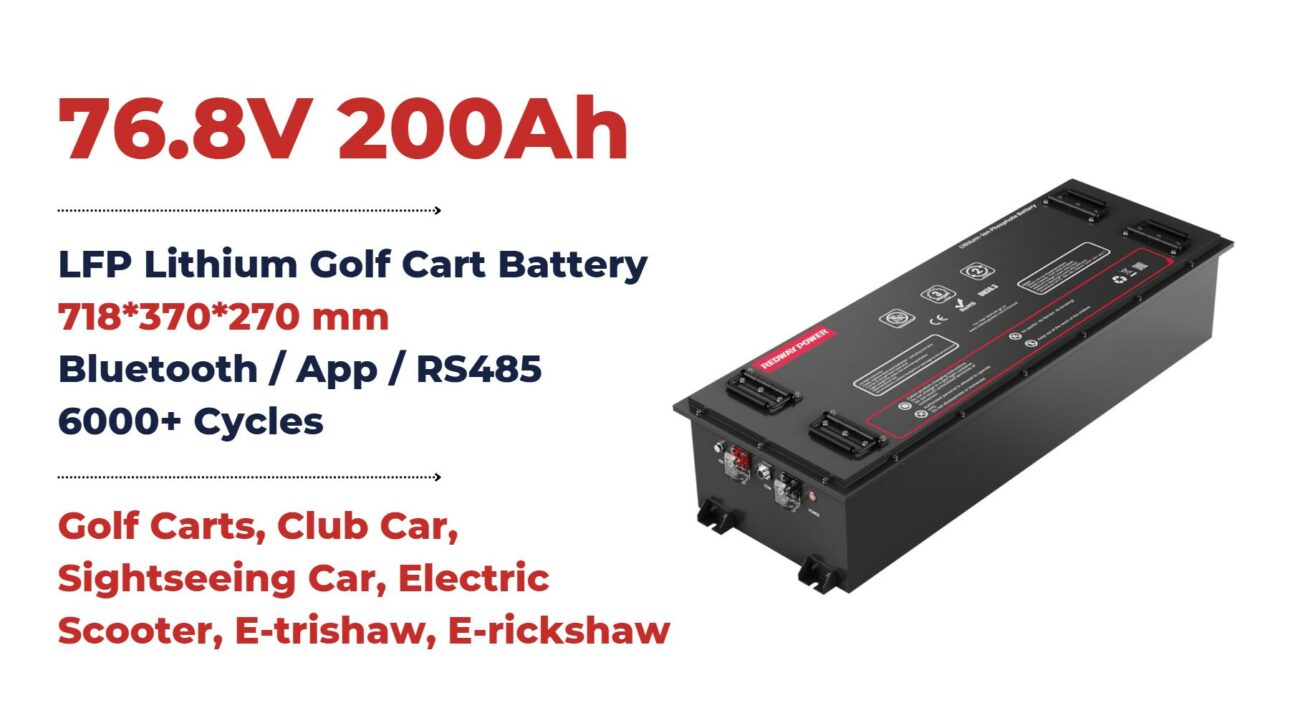Understanding the lifespan of a 72V battery is crucial for anyone relying on these power sources for their vehicles, equipment, or other applications. The longevity of a 72V battery hinges on several key factors including the battery type, usage patterns, and maintenance routines. This comprehensive guide delves into these elements to provide a detailed insight into maximizing the lifespan of your 72V battery.
The duration of a **72V battery’s life depends on its capacity and load requirements. For instance, a fully charged 100Ah battery can last about one hour under full load (5000W) but will last longer with lower power usage. Efficiency losses and discharge rates also impact overall runtime.
Types of 72V Batteries and Their Lifespan
The type of 72V battery significantly affects its lifespan. Let’s explore the different types and their expected durations.
Lithium-Ion Batteries
Lithium-ion batteries are known for their high energy density and long cycle life. On average, a well-maintained lithium-ion 72V battery can last between 2 to 5 years, equivalent to approximately 500 to 1,000 charging cycles. These batteries are favored for their efficiency and reliability.
Lead-Acid Batteries
Lead-acid batteries, although more affordable, have a shorter lifespan compared to lithium-ion batteries. Typically, a lead-acid 72V battery may last about 1 to 3 years, with around 200 to 500 charging cycles. Proper maintenance can somewhat extend their lifespan, but they generally wear out faster due to the chemical reactions involved in their operation.
Nickel-Metal Hydride (NiMH) Batteries
NiMH batteries are less common but still used in specific applications. They offer a middle ground between lithium-ion and lead-acid batteries, with a lifespan of around 3 to 5 years and 400 to 800 charging cycles. NiMH batteries require diligent maintenance to achieve their maximum potential lifespan.
Factors Affecting 72V Battery Lifespan
Several factors influence how long your 72V battery will last. Understanding these can help you adopt practices that prolong battery life.
Usage Patterns
The way you use your battery greatly affects its longevity. Frequent deep discharges can shorten the lifespan of most batteries. It’s advisable to keep the battery charge between 20% and 80% to avoid stress on the battery cells.
Charging Practices
Proper charging practices are essential. Overcharging or undercharging can damage the battery. Using a smart charger that automatically stops charging once the battery is full can prevent overcharging. Similarly, avoiding complete discharges can help maintain the battery’s health.
Temperature Control
Extreme temperatures, both hot and cold, can adversely affect battery life. Lithium-ion batteries, in particular, are sensitive to temperature fluctuations. Keeping the battery within an optimal temperature range (generally between 20°C and 25°C) can prevent damage and extend its lifespan.
Regular Maintenance
Maintenance routines differ based on the battery type. Lead-acid batteries require regular water top-ups and cleaning of terminals to prevent corrosion. Lithium-ion and NiMH batteries need less maintenance but still benefit from periodic inspections to check for any signs of damage or wear.
Maximizing the Lifespan of Your 72V Battery
To ensure your 72V battery lasts as long as possible, follow these best practices:
Adopt Proper Charging Habits
- Use chargers recommended by the battery manufacturer.
- Avoid leaving the battery connected to the charger for extended periods after it is fully charged.
- Implement partial charging cycles instead of full discharges and charges.
Monitor Temperature
- Store and use batteries in a temperature-controlled environment.
- Avoid exposure to direct sunlight or freezing conditions.
- Use battery thermal management systems if available.
Routine Maintenance
- For lead-acid batteries, regularly check and top up water levels.
- Keep battery terminals clean and free from corrosion.
- Periodically inspect the battery for any signs of swelling, leaks, or damage.
Usage Guidelines
- Avoid excessive rapid charging or discharging.
- Use the battery within its recommended capacity and avoid overloading.
- Employ power management strategies to reduce unnecessary power consumption.
Common Signs of Battery Degradation
Recognizing early signs of battery degradation can help you take preventive measures to extend its lifespan.
Reduced Capacity
One of the first signs of a degrading battery is a noticeable reduction in capacity. If your 72V battery isn’t holding a charge as long as it used to, it might be nearing the end of its life.
Increased Self-Discharge
All batteries lose charge over time when not in use. However, if your 72V battery discharges significantly faster than before, it’s a clear indication of aging cells.
Physical Changes
Swelling, leaks, or unusual smells are serious signs of a failing battery. If you notice any physical changes, it’s crucial to stop using the battery immediately and seek professional advice.
Heat Generation
Excessive heat during charging or discharging can indicate internal damage. Consistently warm batteries should be inspected for potential issues.
When to Replace Your 72V Battery
Knowing when to replace your 72V battery is essential for safety and efficiency.
Performance Decline
When the battery can no longer hold a sufficient charge or fails to power your device adequately, it’s time for a replacement.
Safety Concerns
If the battery shows physical signs of damage such as swelling or leaking, replacing it immediately is vital to avoid potential hazards.
Manufacturer’s Recommendations
Adhering to the manufacturer’s lifespan estimates and replacement recommendations ensures optimal performance and safety.
Conclusion
The lifespan of a 72V battery depends on various factors including the type of battery, how it is used, and how well it is maintained. By understanding these factors and adopting best practices, you can significantly extend the life of your battery, ensuring reliable performance and safety. Whether using lithium-ion, lead-acid, or NiMH batteries, diligent care and proper usage are key to maximizing their longevity.







